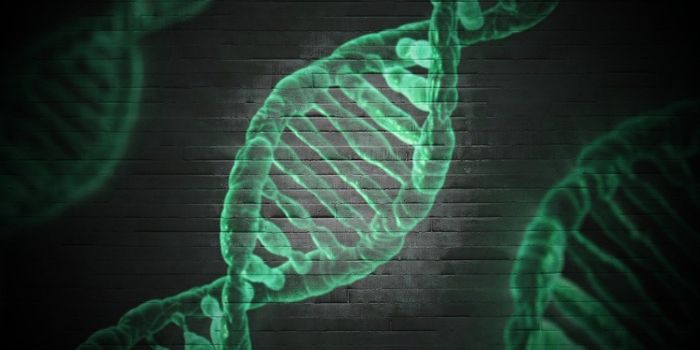There’s a new gene player in breast cancer, and it’s called
GT198. Already known to be mutated in early onset breast and ovarian cancer, researchers
now show that mutation of
GT198 in breast progenitor cells can induce tumor formation. This genetic player represents potentially new ways to diagnose and target breast cancer.

The gene
GT198, also known as
PSMC3IP, encodes a protein that functions in meiotic recombination and DNA repair. More pertinent to breast cancer, GT198 protein products activate other genes in the presence of the hormone estrogen. Mutations in
GT198 cause the gene to function even in the absence of estrogen signals. "Regardless of how much hormone you have, it's out-of-control growth," said Lan Ko, cancer biologist at the Medical College of Georgia (MCG) at Augusta University, and senior study author.
In a sampling of 249 cases of breast cancer tissues in pre- and postmenopausal women, the team found GT198 protein in breast stromal tissues but not in the 11 healthy tissue controls. "This gene mutation can be in both the blood and the tumor tissue of patients, and in the tissue, it's in high percentages," said Ko. "We believe that once this gene is mutated, it induces the tumor to grow."
Stromal tissues is made up of a collection of cells, including fat cells and connective tissues, that provide padding and structural support for the ductal system in the breast. Researchers have previously observed changes in the stroma for breast cancer patients, but they did not know the genetic cause. That the GT198 protein was found in stromal tissue provided the ‘smoking gun’ researchers were hoping to find.
"This puts it together," Ko said, referring to the mutation of GT198 in the breast precursor cells that then make up the various components of the stroma. It’s thought that the mutated form of GT198 stimulates blood vessel growth and fat production – activities that create a more favorable environment for breast cancer to proliferate.
"It's a new target in cancer. It's very exciting," said Nita Maihle, MCG cancer biologist and a study co-author. "This tells you that all the different types of stromal cells in breast tissue are affected by the GT198 mutation because they all come from a common progenitor cell."
A major consequence of this finding is the potential for GT198 to be a new target in breast cancer therapy. A drug that directly blocks GT198 protein in progenitor cells would have the capacity to be very effective, as it would nip cancer where it begins. "We think the way to treat breast cancer is to target the progenitor cells. We want to kill these cells that are feeding the tumor rather than just killing the tumor cells, which is less effective,” said Ko.
Another consequence of this discovery is the potential for GT198 to be a new biomarker in ductal breast cancer. Detecting stromal cells that are positive for the GT198 mutations and expression the protein could enhance diagnosis of cancer in the early stages.
Additional source:
EurekAlert!

 The gene GT198, also known as PSMC3IP, encodes a protein that functions in meiotic recombination and DNA repair. More pertinent to breast cancer, GT198 protein products activate other genes in the presence of the hormone estrogen. Mutations in GT198 cause the gene to function even in the absence of estrogen signals. "Regardless of how much hormone you have, it's out-of-control growth," said Lan Ko, cancer biologist at the Medical College of Georgia (MCG) at Augusta University, and senior study author.
The gene GT198, also known as PSMC3IP, encodes a protein that functions in meiotic recombination and DNA repair. More pertinent to breast cancer, GT198 protein products activate other genes in the presence of the hormone estrogen. Mutations in GT198 cause the gene to function even in the absence of estrogen signals. "Regardless of how much hormone you have, it's out-of-control growth," said Lan Ko, cancer biologist at the Medical College of Georgia (MCG) at Augusta University, and senior study author.
















































